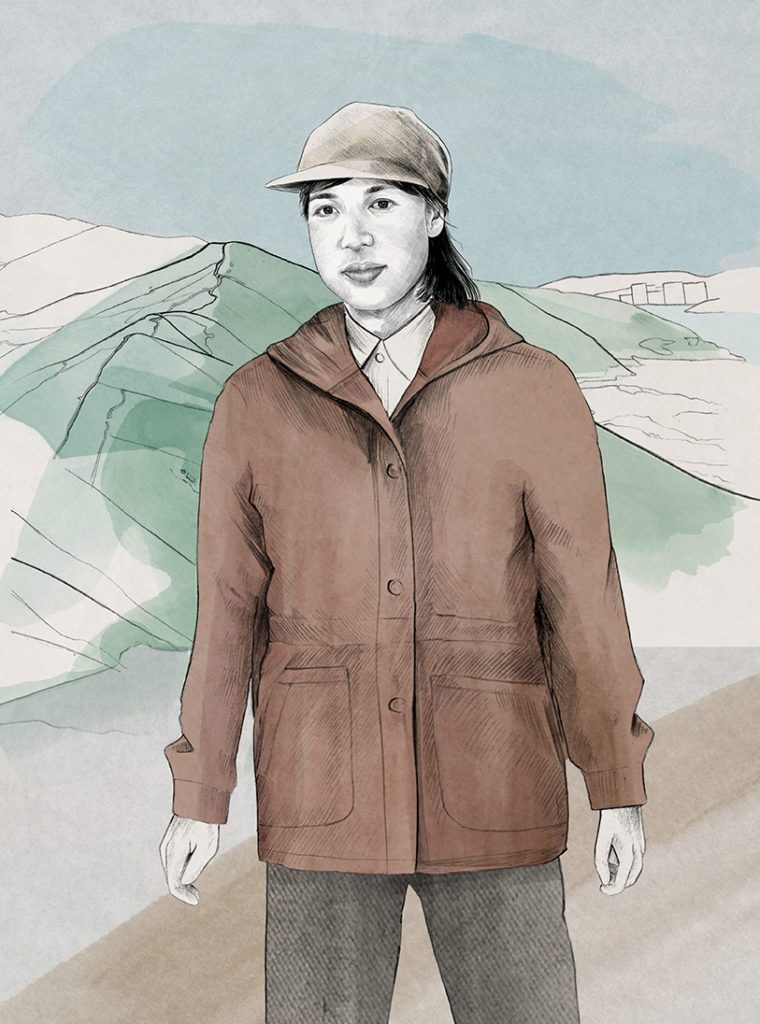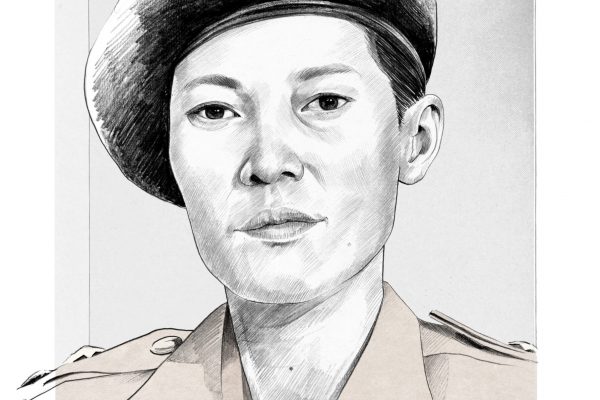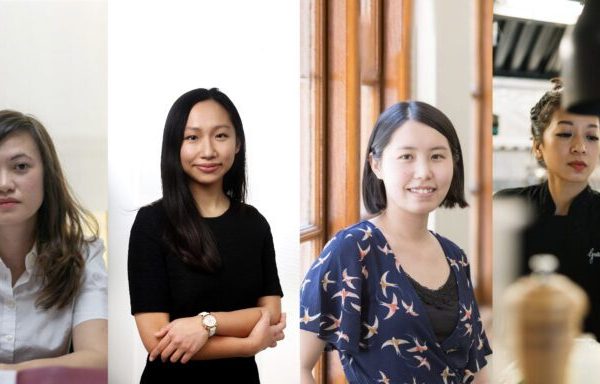Last Word: Remembering Dr Joanna Tse, Hong Kong's Daughter
On 22 May 2003, a hearse made its way from Hong Kong Funeral Home in North Point towards Gallant Garden, the final resting place for civil servants who have died on duty. Thousands of onlookers wearing surgical masks watched the poignant procession in silence.
Outside the funeral home, a TV crew caught a woman waving goodbye in tears. “My heart breaks,” she told reporters. “She is someone’s daughter, and we see her as our own daughter.”
This was the burial of Dr Joanna Tse Yuen-man, who passed away at 35 years old. Remembered as “Hong Kong’s Daughter,” Joanna was one of eight medical professionals to die from Severe Acute Respiratory Syndrome (SARS), which devastated the city in 2003.
Of the estimated 8,273 cases worldwide, 1,755 (21 per cent) were identified in Hong Kong. The city also saw one of the highest mortality rates, accounting for 299 (40 per cent) of 775 total deaths.
Everyday Hongkongers
Born on 31 March 1968, Tse grew up in a roughly 200-square-foot flat at Shek Yam Estate in Kwai Chung, a district in Hong Kong’s northwestern New Territories. According to Tse’s older brother Steven, the family of four were a working-class family of “everyday Hongkongers.”
Their father ran a watch shop in Mong Kok and their mother produced handicrafts at home to sell for extra money. “We didn’t have a lot of entertainment, and we never travelled,” says Steven. But he fondly recalls visiting the now-defunct Lai Yuen amusement park as a family.
His sister, he says, was a quiet, gentle girl and 2004 book Love Cannot be Buried: Joanna Tse Yuen-man, echoes this characterisation. Having compiled memories from Tse’s loved ones, author Velentina Ma describes Tse as a hardworking student who loved to read and had little desire for material things.
The book also highlights a pivotal moment in Tse’s childhood. When she was in primary school, Tse realised she wanted to be a doctor after watching an emergency medical team respond to an accident on the news. She turned and told her father abruptly: “I want to save people.”
Throughout her school years, Tse diligently worked towards this goal. She was an excellent student, achieving eight A grades on her Hong Kong Certificate of Education Examination (then the public exams undertaken by high school students) – a near-perfect score.
Tse’s scholastic accomplishments enabled her to pursue medical studies at Chinese University of Hong Kong (CUHK), where her childhood dream came to fruition. While Tse did not openly discuss her motivations for becoming a doctor, she wrote in her medical school admissions handbook: “Become a doctor to serve the people and utilise my strengths.”
“My first impression of her was that she was a good student,” says So Wing-yee, a doctor at Prince of Wales Hospital, who attended both secondary and medical school with Tse. The two were friends and even roomed together at one point during university. “She was top of the class every year.”
Not only was Tse dedicated to her studies, but So says she was also “smart, determined, and considerate” – important traits for medical professionals. “She was quietly determined in what she wanted to do. Some people loudly declared they wanted to be heroes. She wasn’t like that.”
Some people loudly declared they wanted to be heroes. She wasn’t like that.
So Wing-yee
While studying pre-med at CUHK, Tse worked shifts at various hospitals where she displayed a cheerful bedside manner, according to the book. After she graduated in 1992, Tse took a job in the Accident & Emergency Department at Tuen Mun Hospital. While working in the emergency room for the next two years, she met her future husband Albert Chan, a fellow doctor. They started dating in 1995, bought a home together in 1998 and made plans to get married.
But that same year, Chan was unexpectedly diagnosed with leukaemia. After two years of difficult cancer treatments, the couple married in 2000, when Tse was 32. Unfortunately, Chan passed away from the disease just two years later in 2002.
Tse’s brother Steven recalls a particularly moving moment at Chan’s memorial service. When a moth – believed by some in Chinese culture to represent the spirit of the departed – appeared at the funeral home, Tse said gently: “You have to go.”
 Tse as a Girl Guide in Hong Kong
Tse as a Girl Guide in Hong Kong
SARS takes its toll
While her husband was sick, Tse found solace in her Christian faith and further studies to become a respiratory specialist. About half a year after Chan died, Tse passed the specialist exams and officially shifted her focus to respiratory medicine.
In March 2003, the SARS outbreak – which began in mainland China in November 2002 – gripped the city and, by extension, the medical community. But no one at that time understood the disease fully. “You can see from its name [severe acute respiratory syndrome] that it doesn’t actually tell you what the disease is,” So explains. “It had never happened before – where half of the medical team didn’t know what they were dealing with.”
As SARS patients began flooding Hong Kong hospitals, doctors divided their staff into “clean” and “dirty” teams, with the latter responsible for treating SARS patients in the wards. During the first month of the outbreak, Tse volunteered to join the dirty team. “Because she was a respiratory expert, she wanted to work on these cases and felt she should be on the dirty team,” So says.
After resuscitating a SARS patient who later died of the disease, Tse began to experience symptoms of her own, starting with an intense fever. At first, she had been optimistic, even assuring her family that she would celebrate her birthday with them after she recovered. “In the first couple of weeks, she was doing okay, and then it started to deteriorate,” So says. “She looked at her own lung scans and knew it was
getting worse.”
I want to show her spirit to people, her spirit of carrying out your responsibilities
Steven Tse
According to a media report by Ming Pao, a nurse testified in Tse’s death inquiry that the hospital had been reusing N95 masks and isolation gowns at the time, but stopped after Tse and other medical professionals contracted SARS.
Forty days later, Tse passed away from the disease on 13 May 2003. When the media praised her actions, it prompted an outpouring of grief across Hong Kong that culminated in her emotional funeral. The community honoured Tse in many ways. That same year, the Hong Kong government awarded her posthumously with a Gold Medal for Bravery.
In 2004, the CUHK Medical Alumni Association established the Dr Tse Yuen Man Memorial Scholarship, which is awarded to two medical students and one nursing student each year. Her story was also made into a movie, The Miracle Box, which focused on her marriage and work. Today, the Fighting SARS Memorial Architectural Scene at Hong Kong Park features seven statues to honour the medics, including Tse, who died fighting the SARS epidemic.
Her brother Steven, however, says Tse wouldn’t want to be praised for doing her job. He hopes her legacy can be viewed from a different perspective. For the family, Tse is an inspiring example of Hong Kong’s famous “lion rock spirit,” displaying perseverance and solidarity in the face of challenges.
“As a doctor, she did what she had to do,” Steven says. “I want to show her spirit to people, her spirit of carrying out your responsibilities.”

